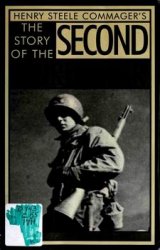A scholar trained in the church, Alcuin (AL-kwin) is best known for his work as headmaster over a school in France, a job he was given by Charlemagne (see entry) in
782. By that time he was almost fifty years old, and had long directed a cathedral school in England, but on returning from a trip to Rome, he met the emperor. It was a time known to some historians as the Dark Ages, when learning had nearly come to a standstill: few people could read and write, and even those literate few had a poor command over Latin, the language of the educated. Thus Charlemagne was badly in need of a scholar to teach the nobility and priests of his empire, as well as the royal family.
Under Alcuin's direction, the palace school at Charlemagne's capital trained a new generation of administrators in a manner that resembled that of the ancient Romans. This contributed significantly to the "Carolingian renaissance," a bright spot of renewed interest in learning during the dark centuries from 500 to 1000. Also notable was Alcuin's reorganization of the liturgy—that is, the procedural instructions for church services—in Charlemagne's empire. This would have an enormous impact far beyond Alcuin's lifetime: many of the reforms he established remain in use among French Catholics to this day.
So, too, would his training of the new educated class in France, Germany, and other lands ruled by Charlemagne. In the latter part of Alcuin's life, just after his retirement in 796, Viking attacks on the British Isles threatened to extinguish the lamp of learning: for instance, the library at York, one of the most important in England, was completely destroyed by the invaders. It was only through the efforts of men from the European continent—students of Alcuin's students—that the scholarly tradition was reestablished in England.




 World History
World History









